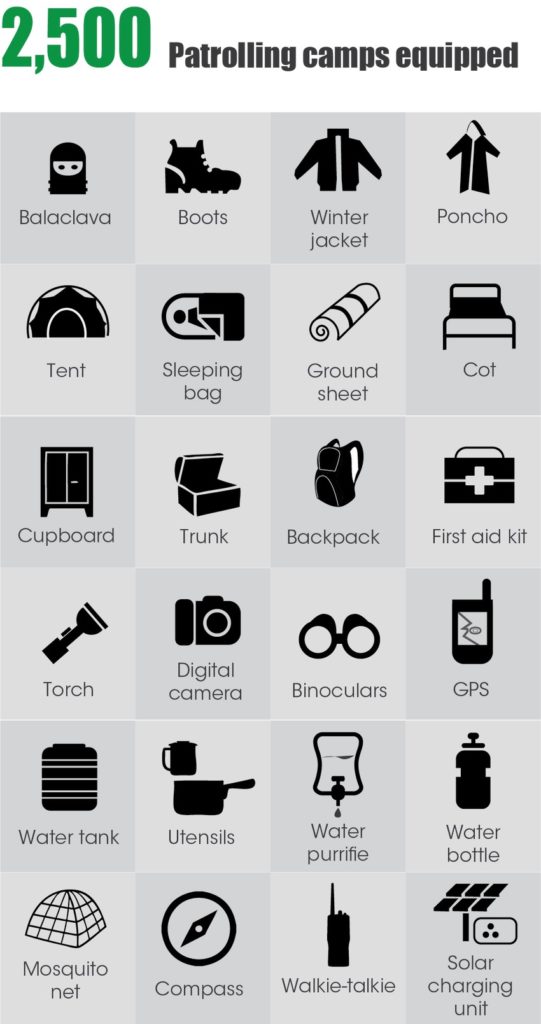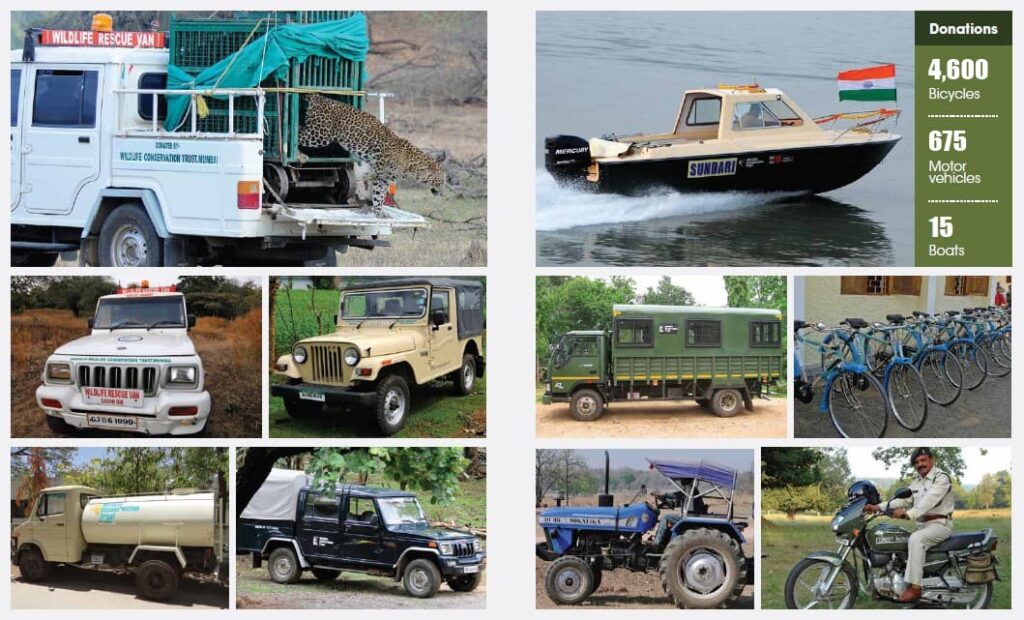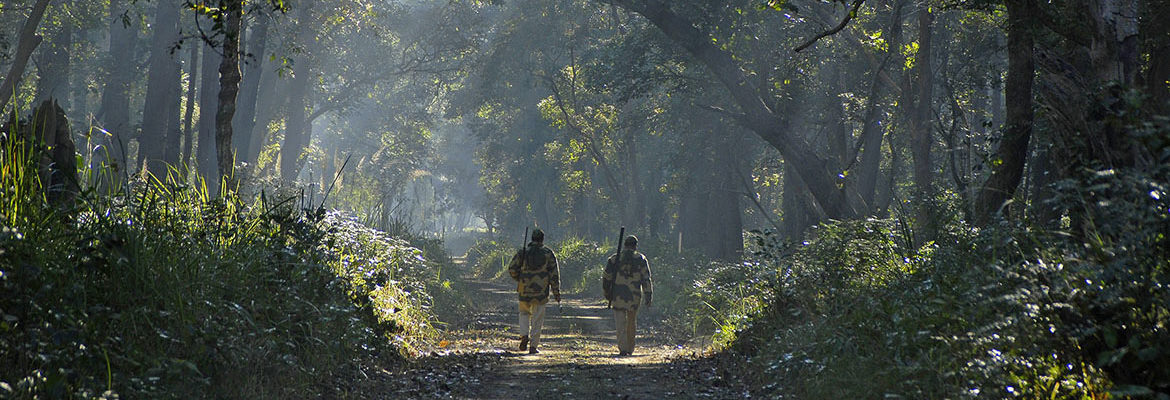Equipping Patrolling Camps
Patrolling Camps, also known as Anti-Poaching Camps (APCs), are a fundamental unit of protection within a tiger reserve. Strategically placed at sensitive locations in a forest, patrolling camps serve as a base from where guards can patrol the surrounding landscape. The remoteness of these locations poses several challenges for forest officials who battle extreme weather conditions and face life-threatening situations on a daily basis.
To improve the safety and comfort of frontline forest staff, WCT works on improving the living conditions in patrolling camps.
WCT equips patrolling camps with up to 28 essential items such as solar charging units, water purifiers, first aid kits, walkie-talkies, binoculars, compasses, tents, boots and other items.
In a first-of-its-kind initiative, WCT has equipped 2,500 APCs in Protected Areas (PAs) across the country. This crucial initiative has greatly boosted the morale of forest guards and watchers who are responsible for safeguarding India’s natural ecosystems.

Solar Powered APCs
WCT has installed Solar Integrated Systems in APCs to provide electricity for lighting and charging of essential equipment such as wireless sets, torches, digital cameras, rechargeable batteries, mobile phones, etc. Over 2,000 such units have been installed in patrolling camps in PAs across the country.
Ensuring Clean Drinking Water
WCT has provided reverse osmosis (RO) water filtration units to parks such as Gir, Bandipur, Nagarahole and Panna. This has ensured supply of potable water from a central facility to remote APCs.
WCT also donates potable water filtration units to inaccessible APCs. Officials working from APCs in Madhya Pradesh, Gujarat, Rajasthan, Karnataka and Uttar Pradesh, among other states, have greatly benefitted from these plants.
Site-Specific Approach
Each landscape has its own challenges and WCT tailors its approach accordingly.
- In the Sundarban Tiger Reserve, staff required a field station in Chulkati. Due to the remoteness of the location, costs were extremely high and government budgets were insufficient. WCT stepped in and today the camp allows staff to patrol 200 sq. km. of forest that was previously inaccessible to them.
- In the Pakke Tiger Reserve, delivering food to remote APCs is both challenging and expensive. WCT has provided the funds necessary to ensure that adequate rations are delivered to all APCs in Pakke in a timely manner.
Designing Energy-Efficient Patrolling Camps
WCT designed a pilot APC in Bandipur to showcase how camps can be built in an environmentally-friendly manner, while also ensuring the comfort of field staff. The pilot APC uses solar power for electrification, has plenty of natural light, a water harvesting facility, and an inbuilt efficient cooking stove. It was built with naturally-insulating bricks made from soil available on-site.
Improving Staff Mobility
WCT supplements the efforts of state governments by donating an array of vehicles for frontline forest staff. We believe that greater mobility of the staff translates into better protection of remote, undulating and vulnerable forest areas, and improves responses to human-animal conflict situations.
WCT donates bicycles, 125cc motorcycles, 4WD vehicles, 22-seater troop carriers, high-speed motorboats, water tankers and tractors to forest departments across the country. Trucks are donated to parks that have constituted a Special Tiger Protection Force (STPF) to allow 20 guards to travel as a unit. WCT provides tankers so that officials can fill waterholes strewn across a difficult terrain more efficiently for wildlife during summer.

Simultaneously, we train frontline forest staff in wildlife crime prevention.
Read about our forest guard training programmes here.
Your donations support our on-ground operations, helping us meet our conservation goals.

